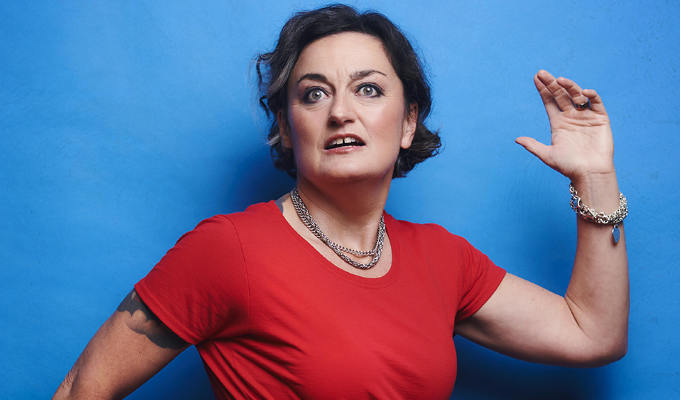John Williams: My Son's Not Rainman
Note: This review is from 2013
Review by Steve Bennett
It would take a stony character not to be moved by a good-hearted single father’s sincere stories of bringing up an 11-year-old with autism. ‘It’s about trying to find someone who doesn’t know that they are lost,’ says John Williams, poignantly, at the show’s start.
Yet this is not a show with great ambition beyond sharing the joy, and the frustration, of his life. Any grander themes are left unsaid, for audiences to take away with them if they wish, rather than be layered on with a trowel.
So we have touching and funny stories about how he tried to bribe his son Finn out of his penchant for biting people, about their eventful attempt to play a simple game crazy golf or about going to a disco at a special school – where Williams allows his usual adherence to the truth go by the wayside for a series of dubious gags.
But you can’t fail to be moved by the pathos of other moments, such as when Fin is first diagnosed and the medics hand over a sheath of information about living with the condition. ‘I don’t want benefits,’ John cries out. ‘You’re a doctor, cure him.’
As that shock becomes the new normal, Williams deals with it with upbeat good humour, which sets the tone of this show. That one section is titled ‘let’s trivialise a major brain development disorder in 60 seconds for the purposes of light entertainment’ certainly shows he can laugh about the situation.
Williams is a big, bold personality, someone clearly giving a performance rather than the naturalistic stance of most stand-ups; yet the authenticity is in the tales, rather than the delivery. When he breaks out into more traditional stand-up fare, such as the work of obscure singer-songwriter Boyd Clack, it seems slightly out of place, however funny it is.
There are also some nice presentational devices in the show, which has been directed by Anna Crilley – more usually known for surrealism, rather than these affectionate true-life yarns. The most notable nod to staging are the quotes that pop up in Fisher-Price Fridge Magnets on the screen between scenes, from such great philosophers as Friedrich Nietzsche, Neil Gaiman... and Winnie The Pooh.
Overall, this is a touching portrait of the strong father-son bond; a must-see for parents of children with autism, but a rewarding heart-warmer for everyone else.
Review date: 14 Aug 2013
Reviewed by: Steve Bennett








